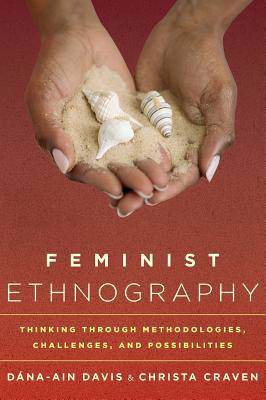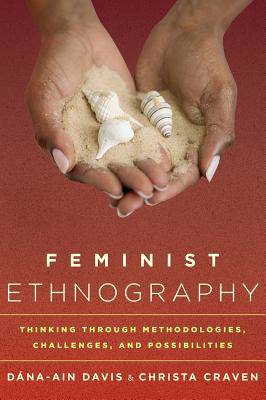
Door een staking bij bpost kan je online bestelling op dit moment iets langer onderweg zijn dan voorzien. Dringend iets nodig? Onze winkels ontvangen jou met open armen!
- Afhalen na 1 uur in een winkel met voorraad
- Gratis thuislevering in België vanaf € 30
- Ruim aanbod met 7 miljoen producten
Door een staking bij bpost kan je online bestelling op dit moment iets langer onderweg zijn dan voorzien. Dringend iets nodig? Onze winkels ontvangen jou met open armen!
- Afhalen na 1 uur in een winkel met voorraad
- Gratis thuislevering in België vanaf € 30
- Ruim aanbod met 7 miljoen producten
Zoeken
Feminist Ethnography
Thinking Through Methodologies, Challenges, and Possibilities
Dána-Ain Davis, Christa Craven
Hardcover | Engels
€ 115,95
+ 231 punten
Uitvoering
Omschrijving
What is feminist ethnography? What is its history? How can its methods be applied? How is feminist ethnography produced, distributed, and evaluated? How do feminist ethnographers link their findings to broader publics through activism, advocacy, and public policy? Investigating these questions and more, this cross-cultural and interdisciplinary new text employs a problem-based approach to guide readers through the methods, challenges, and possibilities of feminist ethnography. Dána-Ain Davis and Christa Craven tease out the influences of feminist ethnography across a variety of disciplines including women's and gender studies, critical race studies, ethnic studies, education, communications, psychology, sociology, urban studies, and American studies. Feature elements of the text include Essentials (excerpts from key texts in the field), Spotlights (interviews with feminist ethnographers), and suggested assignments and readings. The text concludes with a "conversation" among contemporary feminist ethnographers about what feminist ethnography looks like today and into the future. This text is accompanied by an author-maintained website that can be found here: http: //discover.wooster.edu/feministethnography/
Specificaties
Betrokkenen
- Auteur(s):
- Uitgeverij:
Inhoud
- Aantal bladzijden:
- 218
- Taal:
- Engels
Eigenschappen
- Productcode (EAN):
- 9780759122444
- Verschijningsdatum:
- 7/06/2016
- Uitvoering:
- Hardcover
- Formaat:
- Genaaid
- Afmetingen:
- 187 mm x 262 mm
- Gewicht:
- 598 g

Alleen bij Standaard Boekhandel
+ 231 punten op je klantenkaart van Standaard Boekhandel
Beoordelingen
We publiceren alleen reviews die voldoen aan de voorwaarden voor reviews. Bekijk onze voorwaarden voor reviews.











